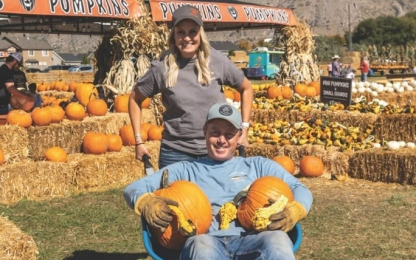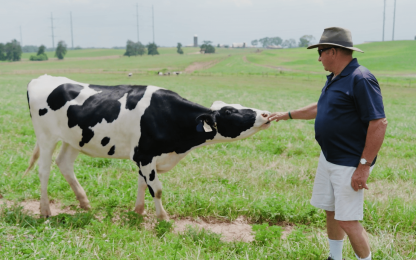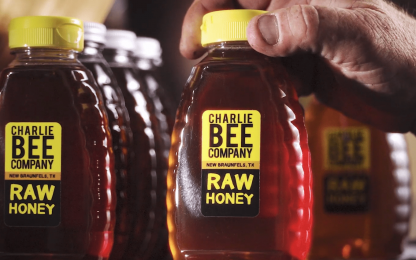Although his family has ranched the same Texas land since the late 1800s, Cade Richmond had a slightly different idea about what he wanted to do.
He started his own agriculture operation 11 years ago while still in college and, with strong support from his wife, Jessica, has been expanding the business ever since.
Quality and diversity
Last year, the Richmond’s hay operation reached almost 100,000 bales. The hay operation is 100% mechanized with the implementation of bale accumulators and a modern grapple loading system. Most of this is harvested, baled and stored in the Richmond’s barns before being sold, primarily to feed the horse industry in Texas. “We’ve been able to get a pretty stable income because the horse hay market is steady,” Cade said. The quality of the Richmond’s product is certainly a factor – their hay is protein tested and guaranteed. Consistent supply is even more important. In 2011, Cade began wrapping his hay with one blue and one orange color of twine to allow his customers to brand identify Richmond Hay.
In an effort to diversify their business, the Richmonds have a cattle operation that includes replacement heifers, stockers, and a cow/calf operation, all financed through Central Texas Farm Credit. Oat and wheat pastures are planted each fall to provide winter grazing for the stocker and replacement heifers. Two full-time and several seasonal employees help ease the workload, and also gave the couple an unexpected chance to travel.
Connecting with other young farmers
In 2011, Jessica won the Texas Farm Bureau young farmers and ranchers “Discussion Meet,” a simulated meeting where contestants discuss a specific ag-related topic, in this case the role of agriculture in addressing health and obesity issues. As part of her prize, she and Cade attended the 2012 American Farm Bureau Federation (AFBF) annual meeting in Hawaii. While there, in addition to Jessica competing in the national Discussion Meet, the Richmonds had the opportunity to talk with other young farmers from across the U.S. “Most farmers are older and more established and have different challenges than us,” Jessica said. “It was nice to meet other young people who have the same challenges.”
Agriculture advocacy
An interesting outcome of the trip was a desire to become more involved with the Texas Farm Bureau. Although they’d been members for a while, Jessica said, “The first 10 years, we were so busy building our business that it was difficult to think we could play a part in policy. But now we’re more established, more confident.” Influencing policy is a key objective of AFBF, and the Richmonds thinks that there are important issues at stake, including sustainability, ecological concerns like water quality and even child labor laws. “We’re more aware of these issues, and if we don’t let our voices be heard and our experiences be shared, decisions can be made that could influence us and we never even know.”
Despite their newfound commitment to giving back to the agricultural industry, the Richmonds remain focused primarily on continuing to expand their own operation. “We’re still at the building stage of our business,” Cade said. “At our age, our long-term plans are about growth and increasing our equity in the operation.”



